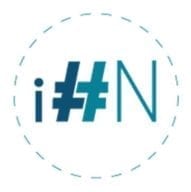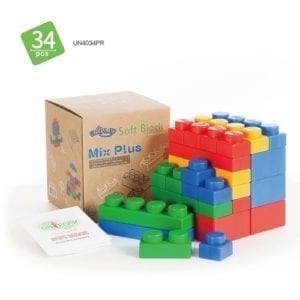So you bought a giant shiny box of homeschool curriculum. It looked amazing in the catalog. Great literature, history, science, and a schedule telling you exactly what to do when. No more weekends or evenings spent planning. It was an open and go choice.
But your days are overwhelming. It takes all day to get through the schedule. You are exhausted by lunch and your kids are complaining. They keep saying it’s too hard. But you know, it isn’t. What’s more, you love the curriculum. The content, the projects, it’s interesting, engaging, and well-organized.
The only problem is, you just can’t get it done.
What do you do? Throw it out? Buy again? Tweak the carefully curated schedule?
Things to Consider
Many publishers provide more than they expect you to complete. Better to give the customer more than less. What if you get through it all before the end of the year? It would seem like they did not give you enough to do. The publisher wants the customer to be impressed with everything they have included. They are not thinking about how you feel when the work put before you for a year, would, in reality, take 2 or 3 years if you completed everything.
No publisher or curriculum writer can know your kid. An assignment that may take one child 5 minutes, will take another kid 30 minutes. This is another reason the tendency is to give you more than you can do rather just what needs to be done.
What needs to be done also varies by child, as some children need much more repetition before they understand and remember content and concepts. The publisher wants to make sure that every child learns the material that has been presented and often does this by including assignments which are redundant for children who learn quickly.
Curriculum is a guide. A paved, smooth path for you to follow on your journey. It should always be a help and not a hindrance to our homeschool. But the attitude we have towards that path matters immensely. I should base the speed at which us walk along the path on the needs of our child. Not the pre-made schedule that was included.
Time is limited. We simply cannot allow academics to take over our day to the exclusion of other needed activities. We need to eat, move, breathe, rest, and play. These things are more important for brain growth and development than getting to the end of the math book this year.
Stick the curriculum part of your day, in a box
Instead of trying to mold your life around the curriculum you have chosen, trim and tweak the curriculum to fit into your life.
Because we must operate within the limitations of time, the school part of our day must be limited to an appropriate length of time. One way to keep the curriculum from taking over your life, is to keep it from taking over your day. Decide how many hours a day you will spend covering academics and then stop. Even if you did not complete every box on that conveniently pre-made schedule. Recognize how much your children have learned that day, instead of obsessing over what you did not get to.
You can break it down further, by deciding how much time you will spend on different parts of the curriculum. For example, 30 minutes on math, 2 hours reading literature, 1 hour on math or science content, 10 minutes on handwriting etc.
Don’t plan more time on a subject than your child can handle. Do their eyes glaze over after 15 minutes of math? Then they aren’t absorbing the rest of the lesson. You might finish the lesson 30 minutes later and check the box, but their brain is not retaining, so you are wasting your time. Don’t put the box above the brain.
Put every piece of the boxed curriculum in a box on your schedule, either daily or weekly, or somewhere in-between. If the boxes on your schedule are full, and there are still things that came in your curriculum, then pick something to leave out for now.
This does not mean you will never do it. It just means you don’t have time right now. Or rather, that you feel another activity is more important than that one. The more important activity could simply be that mom needs to cook dinner, or the kids need to go play outside. It does not need to be something you can brag about to be important.
As you are doing this boxing up, it may help you to categorize subjects, skills, and learning activities by importance. You then know which things to leave out if they don’t fit, or which things you will switch to only working on a few times a week instead of daily if it does not all fit on the daily schedule.
For more about clarifying your own priorities read Why and How to Create Your Homeschool Vision Statement.
When prioritizing I always keep in mind the three R’s, reading, writing, and arithmetic. I make sure my kids do those things every day. They are the skills, of learning and will be foundational to future success.
Do you think your child is being lazy with their schoolwork?
Are you worried about cutting down the time spent because you think your kid is just trying to get out of work? That is a possibility. If this is your struggle I suggest both a minimum amount of time spent on a subject and a minimum amount of work completed. But you have to choose minimums you know your child is absolutely capable of, then hold them to it. This might mean your homeschooler has “homework” to do after school. But most of the time kids just can’t concentrate as long as the curriculum wants them to, or as long as you think they should be able to, Thinking is Hard Work.
It’s okay to do some assignments the fast way
Sometimes we forget how much effort it takes a child to do a task that seems simple to us. Even curriculum writers forget this. For example, writing a one-sentence answer to a question. Surely, a series of these is not too much to ask of a child in the second or third grade? Well, that all depends. Does the child still have to remind themselves how to form some letters? How many of the words do they know how to spell? Then there is the capital letter and the punctuation. In the meantime, their brain is furiously busy trying to work out how to word the answer, and then how to make the answer shorter, or what to replace the big words with, because they know it will be a lot of work to write out what they are actually thinking.
You will always provoke more thought and discussion with young children when you allow them to answer questions verbally. There is a simple reason for this, they are better at talking than writing.
Now, if you are using the history questions as your writing skills practice for the day, then after discussing the answer verbally with you, they can write a sentence. Prolonging the amount of time they spend thinking about the question will enhance their memory of the concept, fact, or event.
But if your child is already practicing writing somewhere else in your day, answering science, history, or literature questions verbally will save you time. Your child will not suffer from not being asked to painstakingly write out every thought they have. They will not, forever, be injured, by your acknowledging that writing is difficult for them and letting them learn without it. As long as they get some practice, whether it is simple handwriting practice, copywork, or writing down answers for one subject of your choice, their skills will improve as they practice and grow. One day you will wake up and find they can crank out a cohesive essay in less than an hour. You will wonder how much of your stress was entirely needless. You will remember when they struggled to get one sentence down. Part of this phenomenon is just plain old child development. Older kids have better fine motor skills, much more information in their brain to call upon, and more practice thinking. It is only natural that they will find writing easier than young ones.
Which Brings me to my last point.
Sometimes curriculum does not take into account child development or how the brain learns
Educate yourself with a basic understanding of these things. Believe me, knowing how the brain learns can take a load of stress off of you. It helps you know what to add and subtract when you design your days. Most of all it gives you the calm confidence to wake up every day ready to use the curriculum as a tool instead of a master. Become the master of your homeschool. Let the curriculum serve you.
Not sure if you want the same curriculum next year? Check out How to Judge Homeschool Curriculum.



